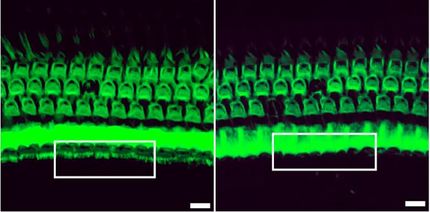Researchers uncover mutated genes involved in lung cancer; one affects nonsmokers
Advertisement
lung cancer patients who have never smoked are more likely than smokers to harbor one of two genetic mutations that researchers at UT Southwestern Medical Center have now linked to the disease.
"This study describes the first known mutation to occur in lung cancer patients who have never smoked," said Dr. Adi Gazdar, professor of pathology in the Nancy B. and Jake L. Hamon Center for Therapeutic Oncology Research and senior author of the study in today's issue of the Journal of the National Cancer Institute. "These findings may help explain why certain lung cancer patients respond dramatically to a specific form of targeted therapy while others have little or no response."
Mutations in the epidermal growth factor receptor (EGFR) gene are present mainly in adenocarcinomas, the most common form of lung cancer found in smokers and non-smokers, as well in women and people under 45. These mutations have shown increased sensitivity to gefitinib (Iressa) and erlotinib (Tarceva), drugs targeting the gene.
To understand better the role of the EGFR mutation in the development of lung cancer, Dr. Gazdar and his colleagues analyzed tissue samples from primary tumors of 519 patients in the United States, Japan, Taiwan and Australia. Mutations in the DNA of nonmalignant lung tissue from many of these patients and from other separate cancer tissues also were examined.
As a result, it appears that two distinct molecular pathways are involved in formation of lung cancer, Dr. Gazdar said. The pathway in smokers involves KRAS gene mutations, while the pathway in people who never smoked involves EGFR gene mutations.
A related study in the current issue of Cancer Research with Dr. Gazdar and his colleagues found that mutations in EGFR and HER2, another gene in the EGFR pathway that is associated with certain cancers, targeted the same patient subpopulations. The discovery that HER2 also is a mutation occurring mainly in tumors of people who never smoked suggests different pathways may be involved in lung cancer formation in smokers and nonsmokers.
"The research has found these tumors can vary by several thousandfold on how sensitive they are to a drug," said Dr. Minna. "We also have been able to identify in advance a pattern of gene expression that tells whether a tumor is going to be resistant or sensitive to a particular drug. We want to be capable of examining a patient's tumor, profile each human gene and then select the best current therapy."























































